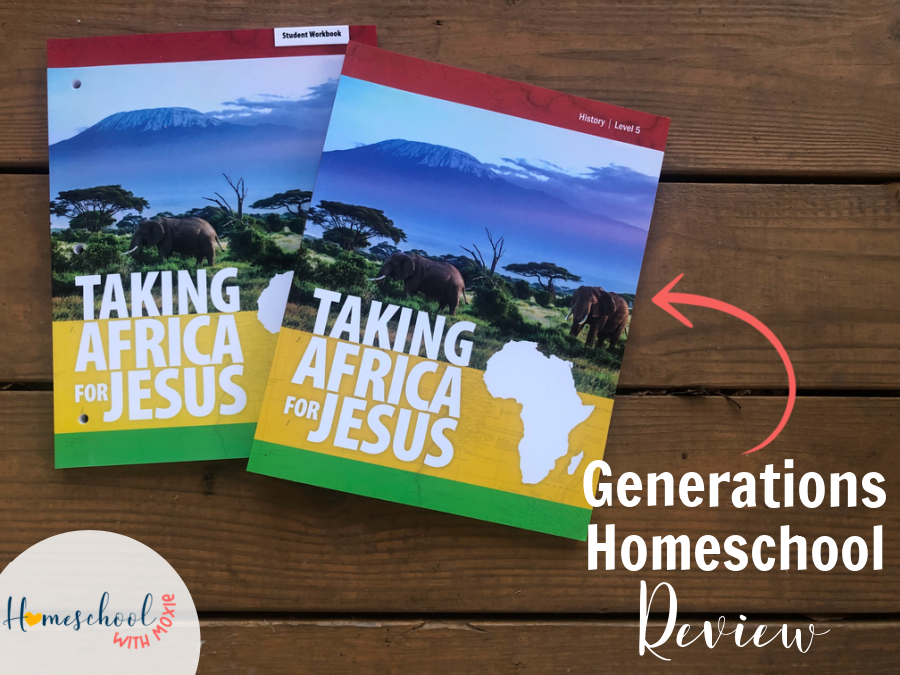Here’s a Generations Homeschool Review of their newest elementary history books.
Generations Homeschool has the focus of integrating God’s Word into every subject. Their goal is to equip parents for family discipleship with their homeschool curriculum for every grade level. We had the opportunity to review some of their elementary history curriculum. Here’s an inside look and honest review of Taking Africa for Jesus, which is written for Grade 5.

My posts contain affiliate links.
Disclaimer: I received a copy of this product in exchange for my honest review. I was not required to write a positive review, nor was I compensated in any other way. All opinions I have expressed are my own or those of my family. I am disclosing this in accordance with the FTC Regulations.
What is Generations Homeschool?
Generations Homeschool exists to bring Christian Discipleship Curriculum to homeschool families. Here are the main pillars of their educational philosophy:
- integrate the Bible
- family discipleship
- God-centered worldview
- combine learning with worship & application
Their homeschool curriculum includes 5 core subjects:
- Bible & family discipleship
- History
- Literature
- Worldview & science
- Christian character
You would still need to purchase math, grammar, and writing resources separately.
I specifically was interested in doing this Generations Homeschool Review to check out their Elementary History Curriculum for Grades 1-6. My youngest of five children will be in fifth grade in the fall and so I’m always curious to know what new resources are out there that didn’t exist a decade ago. Generations Elementary History Curriculum is one such resource. Here’s an inside peek.
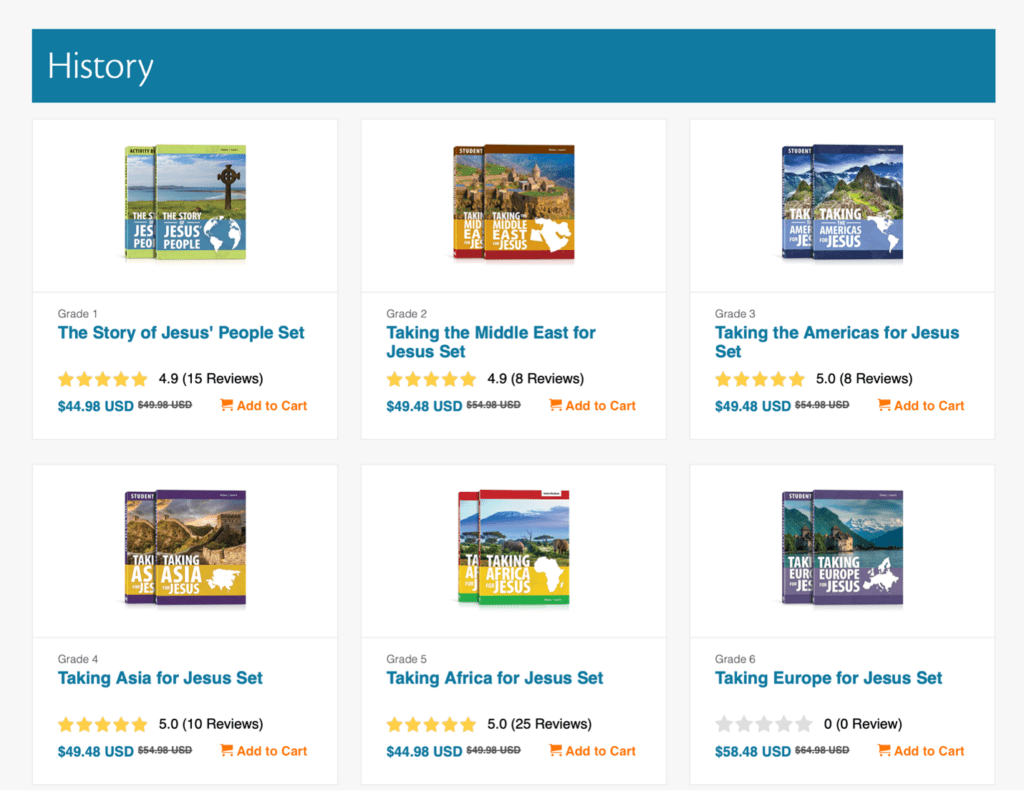
Taking Africa for Jesus Set
I was personally delighted to see an elementary history curriculum with a focus on Africa – because our daughter is from Ethiopia! Learning about Africa is usually an after-thought in many homeschool history resources, but to spend a whole year studying God’s working on the continent will be a treat for us. I peeked ahead to chapter 5 to see that part of this chapter does indeed discuss how Christianity spread in Ethiopia thousands of years ago.
Taking Africa for Jesus is a study of African history from a distinctly Christian worldview. After a few initial lessons about ancient civilizations in Africa, this course then follows the spread of the Gospel on the continent of Africa from biblical times to the present. Many lessons center around a missionary or other key figure.
This textbook and student workbook set is written for a Level 5 student, which corresponds to about a grade 5 level. You could definitely use one of these elementary history sets to teach multiple ages together.
Course Features:
- Prayer Points
- Content Questions
- Geography Review
- Daily Lesson Schedule
- Unit Exams
- Answer Key
What’s Included in Generations Elementary History Curriculum
Taking Africa for Jesus includes two books – the textbook and the workbook. Both books are softcover. The student workbook already has holes punched in the binding. The textbook is full color and includes images while the student workbook is black and white.
The textbook includes four units of five chapters each. There is a suggested schedule which assigns these chapters along with assessments and optional projects to fit a 5-day-per-week school day spanning 36 weeks. There are flex weeks built in to this schedule as well.
Here are the chapter topics for each unit.
Unit 1
- Introduction to Africa
- Egypt (Part 1)
- Egypt (Part 2)
- Egypt (Part 3)
- Christianity Spreads to Africa
Unit 2
- Church Life in North Africa
- Cyprian of Carthage
- Athanasius of Alexandria
- Augustine of Hippo
- The Rise of Islam
Unit 3
- Raymond Lull: Missionary to the Muslims
- The African Slave Trade
- Exploration and Colonization of Africa
- Robert Moffat: Missionary to South Africa
- Samuel Adjai Crowther: A Slave Boy Rescued
Unit 4
- Alexander Mackay: White Man of Work
- Mary Slessor: The Lord’s Servant in Calabar
- Samuel Zwemer: Missionary to Arabia and Egypt
- C.T. Studd: Missionary to the Congo
- Recent Stories from Africa
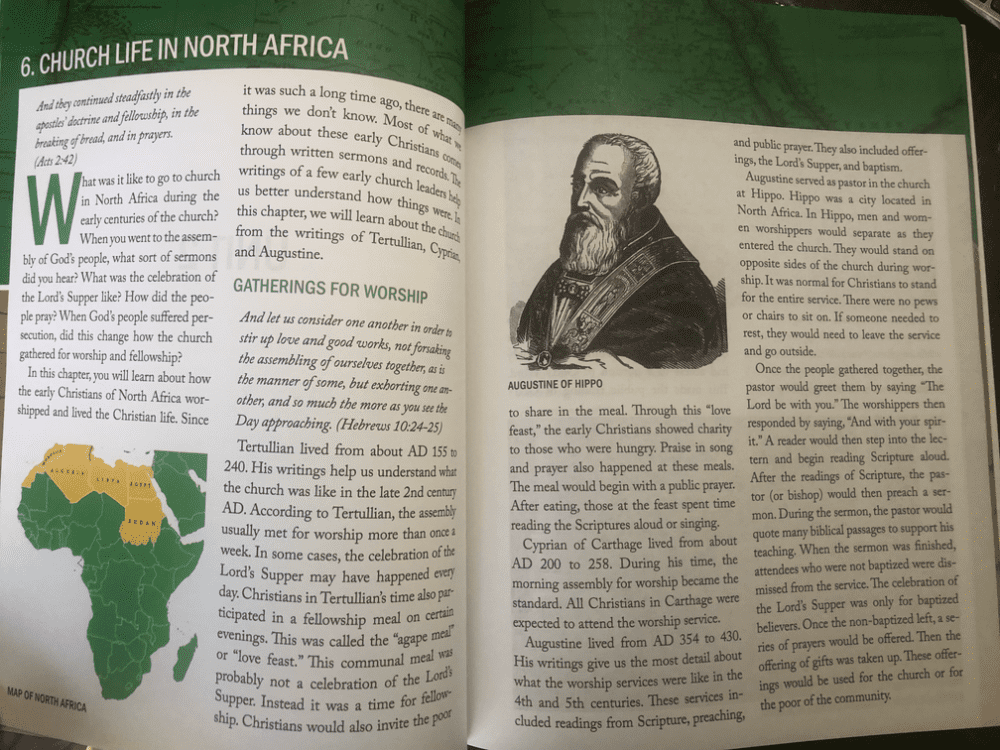
How a Biblical Perspective is Central
While you may be familiar with other elementary textbooks that teach about cultures like ancient Egypt, this one will definitely stand out uniquely for its Biblical perspective and the centrality of the biblical story in how it covers the history of various cultures and empires.
For example, in the Part 1 lesson on Egypt, the lesson focuses on Abram’s visit to Egypt in 2076 BC, along with his encounter of Melchizedek shortly afterward. The parallels of Melchizedek, king of Salem, and Jesus are discussed, with the lesson wrapping up with an overview of the Egyptian religion and the worldview of the Egyptians. All of these topics are centered around biblical texts and biblical worldview explanations.
In the second lesson on Egypt, the focus is on the biblical story of Joseph and then Moses. Part 3 of the study of Egypt concludes with the ten plagues and how they correspond to the Egyptian gods. The lesson discusses the Passover Lamb and all its connections to our redemption. The devastation of Egypt is in the final part of this lesson with a tracing of its history through the centuries after the exodus.
Prayer points are included at the end of each chapter. This emphasis helps the student to apply what they are learning about Africa and the specific needs of the people. You could include the whole family on this prayer for the nations focus.
So instead of tacking on a Christian application at the end of the lesson, or even weaving in Christian worldview perspective throughout the lesson, this curriculum is explicitly taught from the biblical story outward to the culture. It’s not as much concerned about memorizing names of countries and kings as it is with chronicling God’s movement in the peoples of Africa throughout the centuries and millineia.
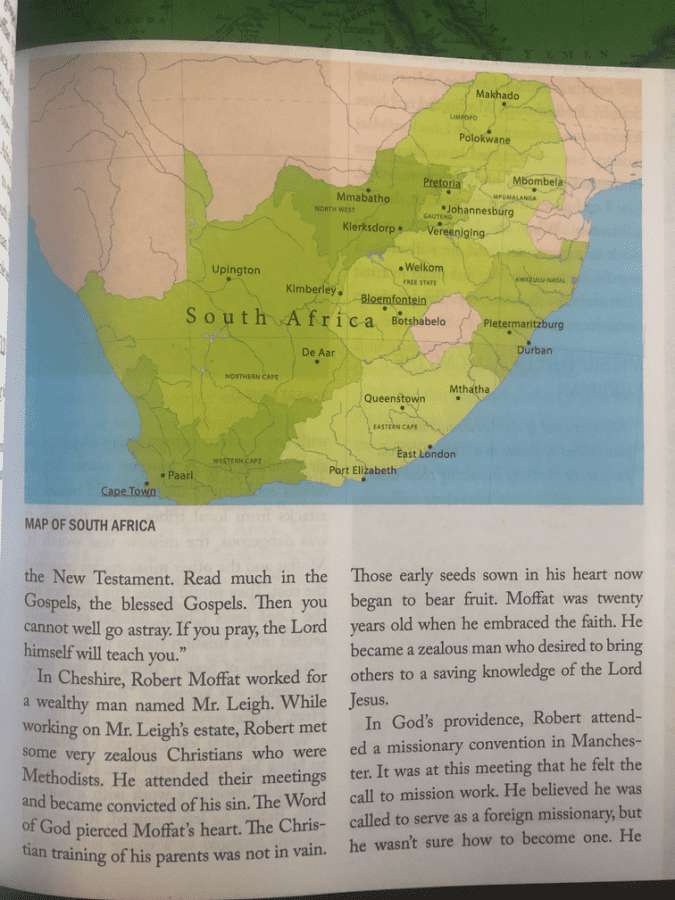
Lesson Schedule
The Student Workbook maps out a suggested lesson schedule based on a 36-week school year.
This curriculum includes end-of-chapter short answer comprehension questions and multiple choice exams. If you want to use all of those assessments and issue a grade for the course, the Student Workbook goes into a detailed explanation about assigning grades. Personally, we don’t bother with grades at the elementary level.
There are also optional enrichment projects included for those of you who want to dive deeper.
For an example of the expectations of how fast your student will work through this resource, the reading of chapter 1 and completing the chapter 1 assignments will take one week, or five school days. Chapter 1 includes 9 pages of textbook reading and then work in the Student Workbook.
These assignments for chapter 1 include:
- 2 questions about “What does God’s Word say?” Your student will read a verse and explain its meaning in context of what they’ve just studied in the textbook.
- 10 factual questions about the chapter
- Mapwork which requires labeling and marking a few key points from the chapter – the map is included in the Student Workbook
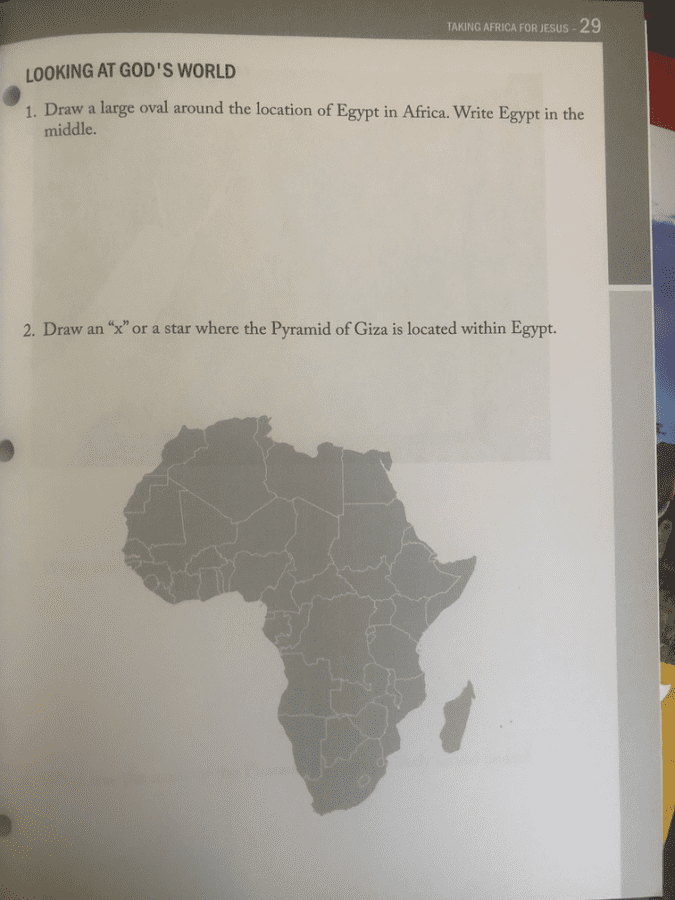
Generations Homeschool Review
I have never seen a Christian history curriculum be as centrally focused around presenting all of history as God’s story as this one.
Here is Generations’ Philosophy of History in their own words:
Above all other areas of curriculum, Christian parents are calling for a God-centered, Jesus-centered, biblical worldview perspective for the critical subject of history. Our children need a 2,000-year, worldwide perspective of the kingdom of God and the work of Christ around the world. They’re not getting this perspective from the history courses available today.
We realize that the time is ripe for a completely unique—a Christ-centered and a missions-oriented—approach to World History. Most history books don’t recognize God’s providential hand in every chapter, and that is what this coursework provides.
The empires of men are failing, but the work of Jesus around the world is flourishing. We must tell this story to our children and our grandchildren—now. It is the most important story to tell because it is His Story!
Generations Homeschool
Many Christian history books give the history while wrapping up the lesson with a verse or a biblical application. But this book has the story of God’s work on the continent of Africa as its main focus. If you hoped your kids would deep dive into Egyptian culture and myth, this book is not for you. If you wanted your kids to primarily focus on mapping out the countries or physical features of the continent of Africa, this book is not for you. If you wanted them to simply learn the basic facts of each civilization or people group on the continent, this book is not for you.
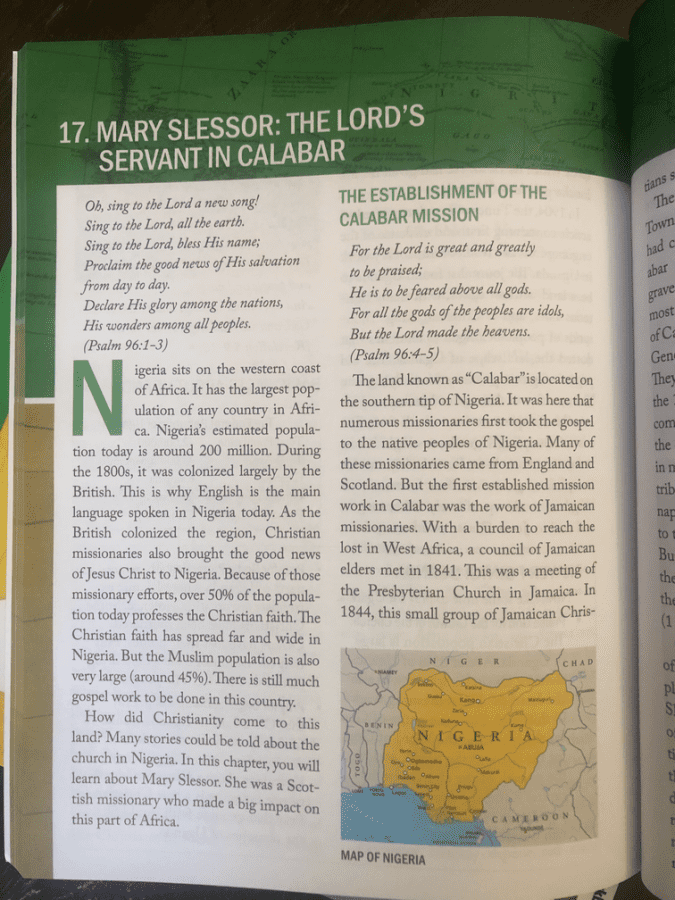
Generations Homeschool Lesson Plans
If you want your homeschool history studies to be infused with a biblical perspective – literally tracing the advance of the Gospel across centuries and countries – then this book is for you!
As far as ease of use, this book is written with a fifth grader in mind, and it’s absolutely an open and go style which your student can complete independently. I know this is an important aspect of user-friendly homeschool curriculum.
After spending one week per chapter, your student will complete Unit 1 by the end of Week 5. Week 6 is devoted to reviewing all the assignments so far in preparation for taking the Unit 1 Exam, which is scheduled for 2 days if needed. The Unit 1 Project takes all of Week 7, and the Optional Enrichment Project can fill all of Week 8. So, you can see that there is plenty of flex time built into this suggested schedule.
The Unit Exams are right in the Student Workbook, which is convenient, but might also concern some parents. You could always pull the exam pages out ahead of time. The exams include ten multiple choice questions.
If you decide to have your child complete the Unit Project, three options are listed in the Student Workbook. Then, there is a page of several more project ideas for enrichment.
The Answer Key is in the back of the Student Workbook.
Final Thoughts on Generations Homeschool Curriculum
I hope this Generations Homeschool Review has given you some clarity as to whether or not this specific elementary history curriculum would be a good fit for your family.
This curriculum has been the most saturated with a Christian worldview and perspective as any that I’ve used or seen. It seems to be concerned with the overall worldview perspective and big picture of God’s working in history rather than the memorization of names and dates. While the factual questions are still included, the application seems to be more central in the curriculum.
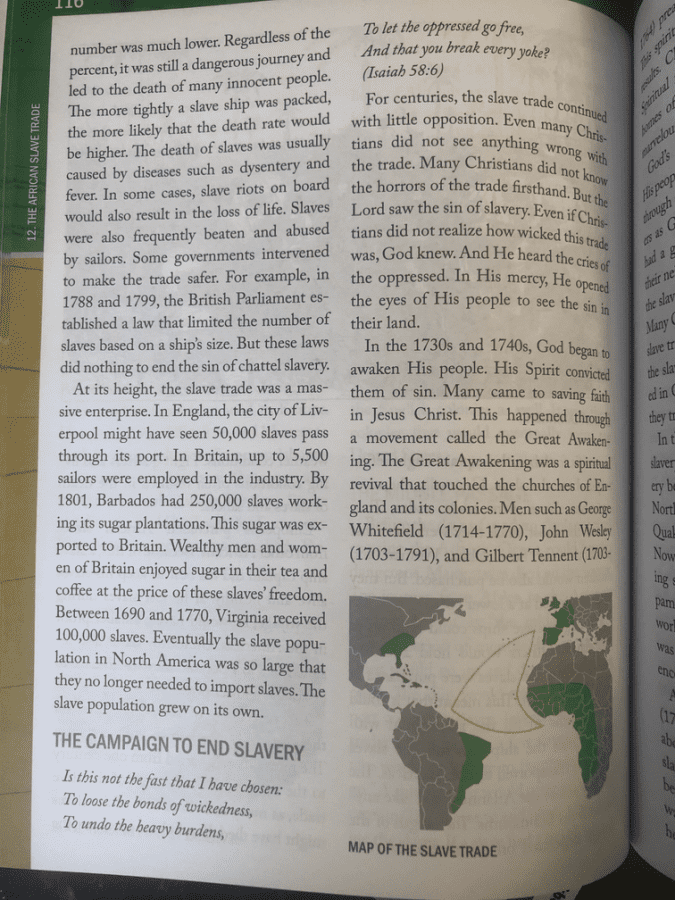
I’ll also mention here that while this is written specifically for a 5th grader to use, you could still use this with several kids in a few different grade levels. While homeschooling my oldest four kids through much of the first decade, we did nearly every subject together since they were only five years apart from youngest to oldest. This is one way you can simplify your homeschooling – by teaching multiple ages together! I think this curriculum could work well that way.
Another key characteristic of good homeschool curriculum is that it needs to be open & go. That is, it shouldn’t come with a clunky teacher’s manual that takes time to figure out each day. It also has to have the ability to be used independently by my kids. Generations Homeschool elementary history curriculum seems to fit this standard as well.
Then, if you’re concerned for a Christian worldview perspective in your curriculum, again, I would say that Generations Homeschool is by far the most saturated with a Gospel focus not only in the application of each lesson, but throughout each chapter itself.
If you found this Generations Homeschool Review to be helpful, then you’ll love our other homeschool curriculum reviews!

